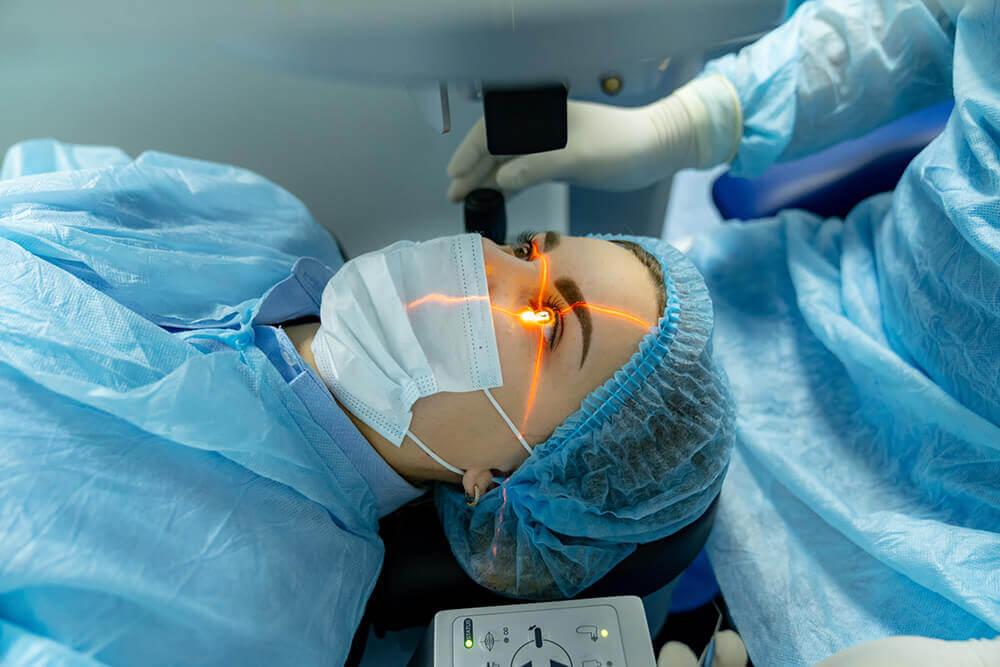Notifications

6 minutes, 39 seconds
-26 Views 0 Comments 0 Likes 0 Reviews

Cataract surgery is one of the most common and successful procedures in modern medicine. Millions of people undergo it every year to restore their vision and improve quality of life. It involves replacing the eye’s natural, clouded lens with a clear artificial one, allowing light to pass through properly again. But many patients, even after successful surgery, find themselves asking—can cataracts come back?
Understanding the nature of cataracts and what happens during and after surgery can help put this concern into perspective.
A cataract forms when the eye’s natural lens becomes cloudy, typically due to aging, trauma, or other medical conditions. During surgery, this cloudy lens is permanently removed and replaced with an artificial intraocular lens (IOL). Since the original lens is no longer in the eye, technically, a cataract cannot “come back.”
However, some patients experience vision problems months or even years after surgery, which can feel similar to the original symptoms. This is why people often ask about the possibility of recurrence. If you’ve had cataract surgery in Ghatkopar or any other location and find your vision becoming blurry again, you might be experiencing a condition known as posterior capsule opacification (PCO), not a returning cataract.
Posterior capsule opacification, often called a "secondary cataract," occurs when the thin membrane (capsule) that holds the new lens becomes cloudy over time. This membrane is left in place during surgery to support the artificial lens. In some patients, cells can grow on the capsule, causing it to thicken or wrinkle, which scatters light and blurs vision.
PCO is quite common and is considered a normal part of the healing process for some people. It is not a new cataract, and it does not mean the surgery failed—it’s simply a potential side effect that can develop after the initial procedure.
If you’re experiencing vision issues after cataract surgery, it’s important to identify whether they may be due to PCO. Common symptoms include:
Blurry or hazy vision
Increased glare from lights, especially at night
Difficulty reading or recognizing faces
Colors appearing faded or dull
These symptoms can closely mimic those of the original cataract, which is why some people mistakenly believe their cataract has returned.
The good news is that posterior capsule opacification is easily treatable with a quick, non-invasive laser procedure called YAG laser capsulotomy. This outpatient treatment involves using a laser to create a small opening in the cloudy capsule behind the IOL. This allows light to pass through clearly again and restores sharp vision.
The procedure is painless, takes only a few minutes, and requires no incisions. Most patients notice an improvement in their vision within a day or two. Once the YAG laser treatment is done, PCO does not usually return, and further treatment is rarely needed.
While there is no guaranteed way to prevent posterior capsule opacification, certain factors can reduce the risk. Advances in surgical techniques and improvements in intraocular lens materials have helped lower the chances of developing PCO. Choosing a skilled and experienced surgeon, like those at Deevine Eye Care, also plays a crucial role in minimizing complications and ensuring long-term success.
Additionally, some IOLs are specially designed to reduce the growth of cells on the capsule, which can help delay or prevent clouding. Your ophthalmologist can discuss these options with you prior to surgery to determine the best course for your eyes.
If you've undergone cataract surgery and notice any changes in your vision—no matter how minor—it’s best to consult your eye care provider. A comprehensive eye exam can help determine whether you’re developing PCO or if another condition is affecting your vision.
Other eye issues such as dry eyes, macular degeneration, or diabetic retinopathy can also cause post-surgical vision problems. Early detection ensures timely treatment and protects your long-term eye health.
To sum it up, cataracts themselves don’t come back after surgery because the natural lens is removed for good. However, a secondary issue like posterior capsule opacification can cause similar symptoms. Fortunately, this condition is easily diagnosed and treated with a safe laser procedure.
Staying informed and having regular eye checkups are essential parts of protecting your sight. Whether you're preparing for surgery or dealing with vision changes afterward, trusted care from experts—like the team at Deevine Eye Care—ensures that your eyes stay healthy and your vision remains clear for years to come.

